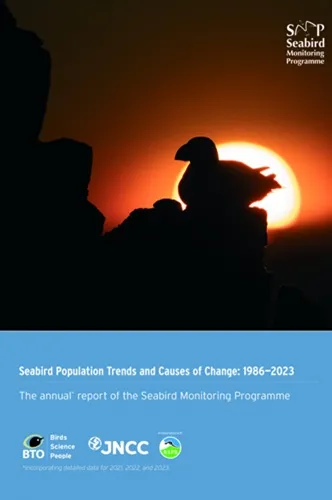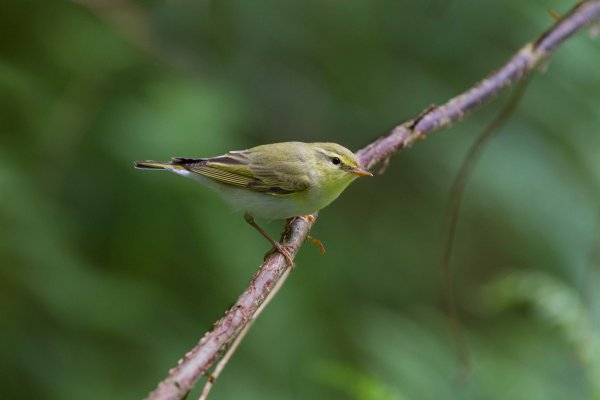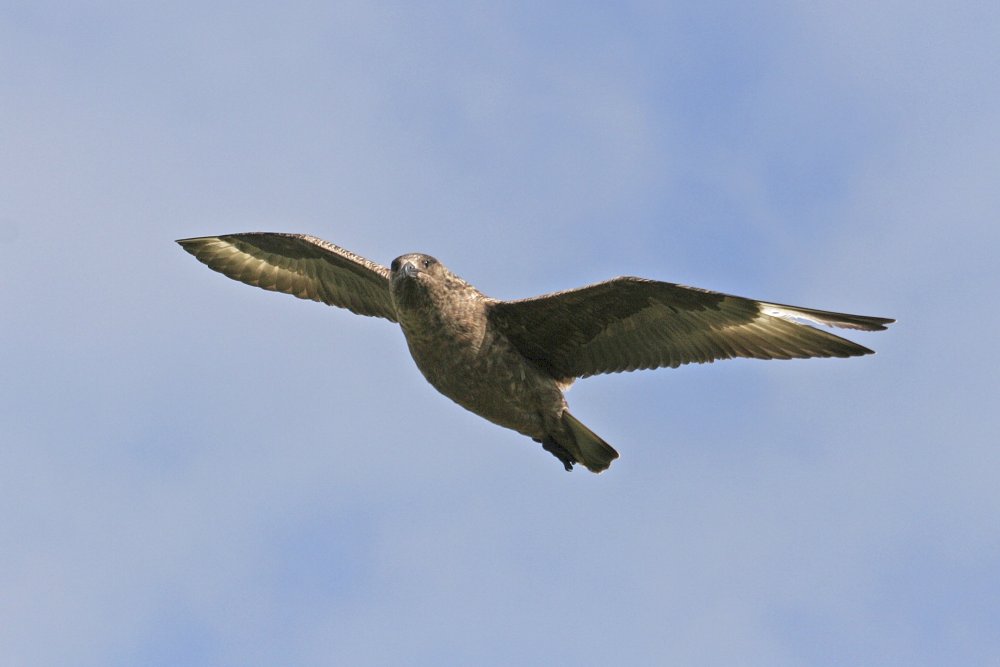BTO create and publish a variety of important articles, papers, journals and other publications, independently and with our partners, for organisations, government and the private sector. Some of our publications (books, guides and atlases) are also available to buy in our online shop.
Annual report of the Seabird Monitoring Programme
Seabird Population Trends and Causes of Change: 1986–2023
This report presents the latest seabird population trends in breeding abundance and productivity using data from the Seabird Monitoring Programme (SMP).
The report documents changes in the abundance and productivity of breeding seabird species in Britain and Ireland from 1986 to 2023, and provides a detailed account of the 2021, 2022 and 2023 breeding seasons.

Search settings
Carry-over effects from passage regions are more important than breeding climate in determining the breeding phenology and performance of three avian migrants of conservation concern
Author: Finch, T., Pearce-Higgins, J.W., Leech, D.I. & Evans, K.L.
Published: 2014
Migrant birds are likely to be particularly vulnerable to climate change because they can be affected by changing conditions on the breeding grounds, wintering grounds or passage areas in between. Many long distance migrants that breed in the UK and winter in Africa are in severe decline, and previous BTO work has shown this can be related to changing conditions in Africa, which affect overwinter survival, as well as to conditions on British breeding grounds. BTO research published last year showed that although conditions in Africa can ‘carry-over’ and affect the timing of nesting in this country, the most important factor influencing breeding was spring temperature in the UK.
01.01.14
Papers

Introducing the R-package 'birdring'
Author: Korner-Nievergelt, F. & Robinson, R.A.
Published: 2014
01.01.14
Papers Ringing and Migration
Saving the Spoon-billed Sandpiper: an update on the conservation programme
Author: Clark, N., Pain, D. & Green, R.
Published: 2014
01.01.14
Papers
Large-scale spatial analysis of ringing and re-encounter data to infer movement patterns: A review including methodological perspectives
Author: Thorup, K., Korner-Nievergelt, F., Cohen, E.B. & Baillie, S.R.
Published: 2014
01.01.14
Papers
Great skua (Stercorarius skua) movements at sea in relation to marine renewable energy developments
Author: Wade, H.M., Masden, E.A., Jackson, A.C., Thaxter, C.B., Burton, N.H.K., Bouten, W. & Furness, R.W.
Published: 2014
Scotland has a target to generate 100% of its energy from renewable sources by 2020. The country therefore has a large number of offshore sites where marine renewable developments (including wind, wave and tidal-stream installations) are proposed or under construction. As any existing developments have only become operational in recent years, and are only few in number, the effect they have on marine ecosystems is not yet properly understood.
01.01.14
Papers
